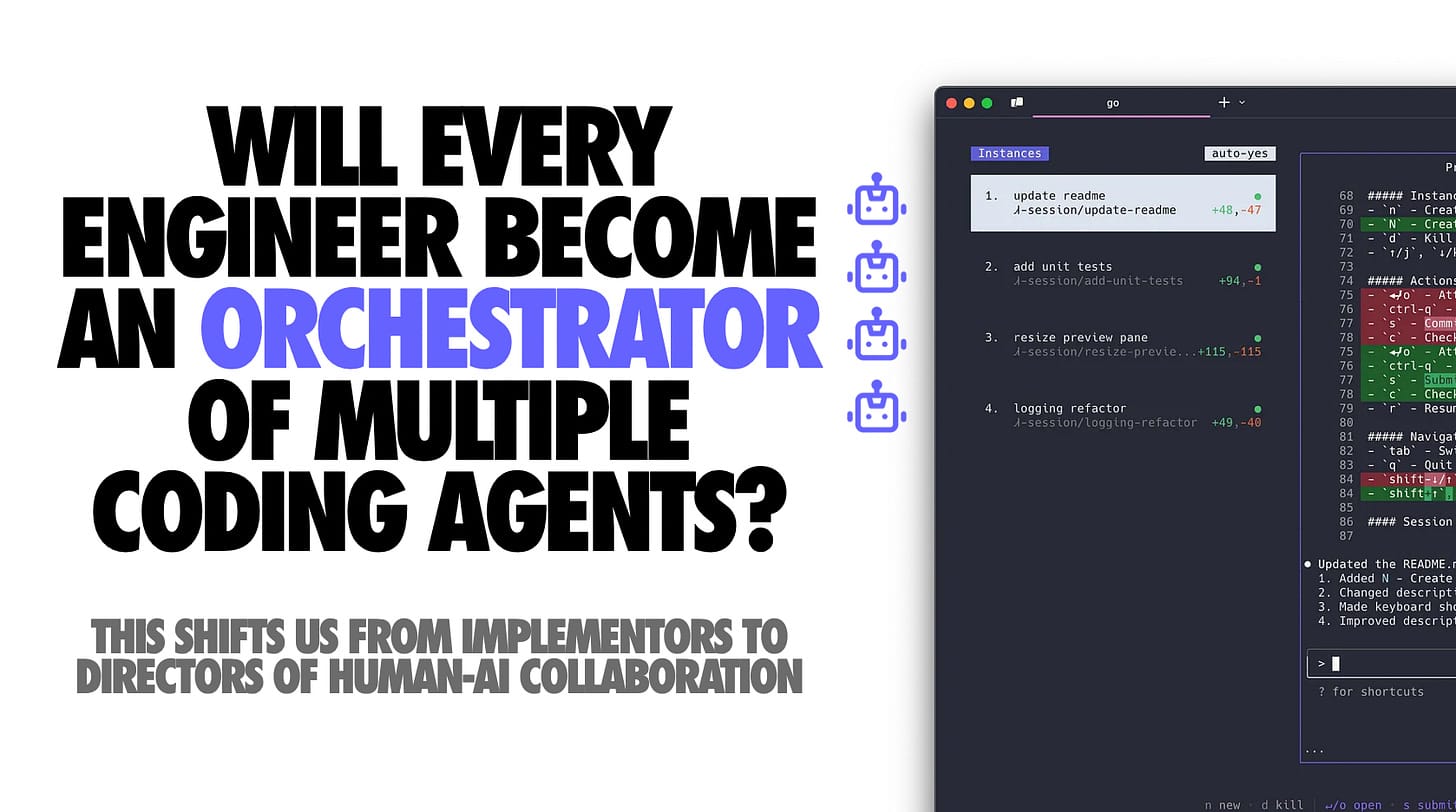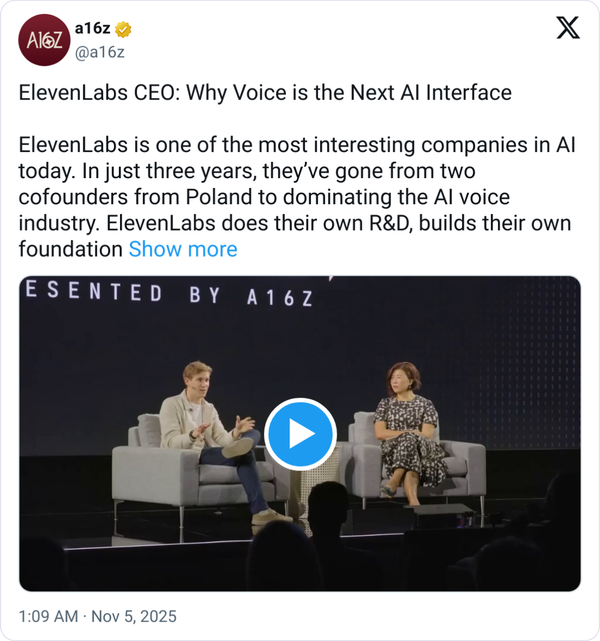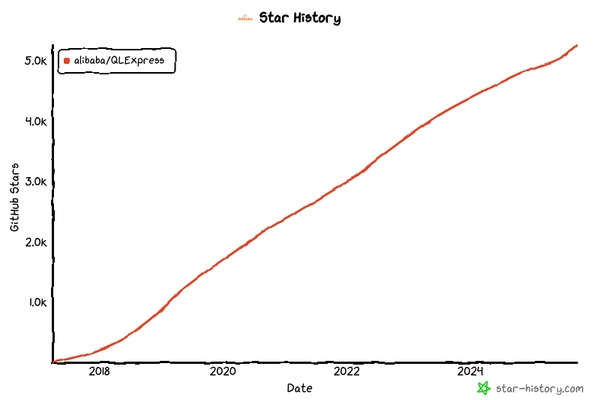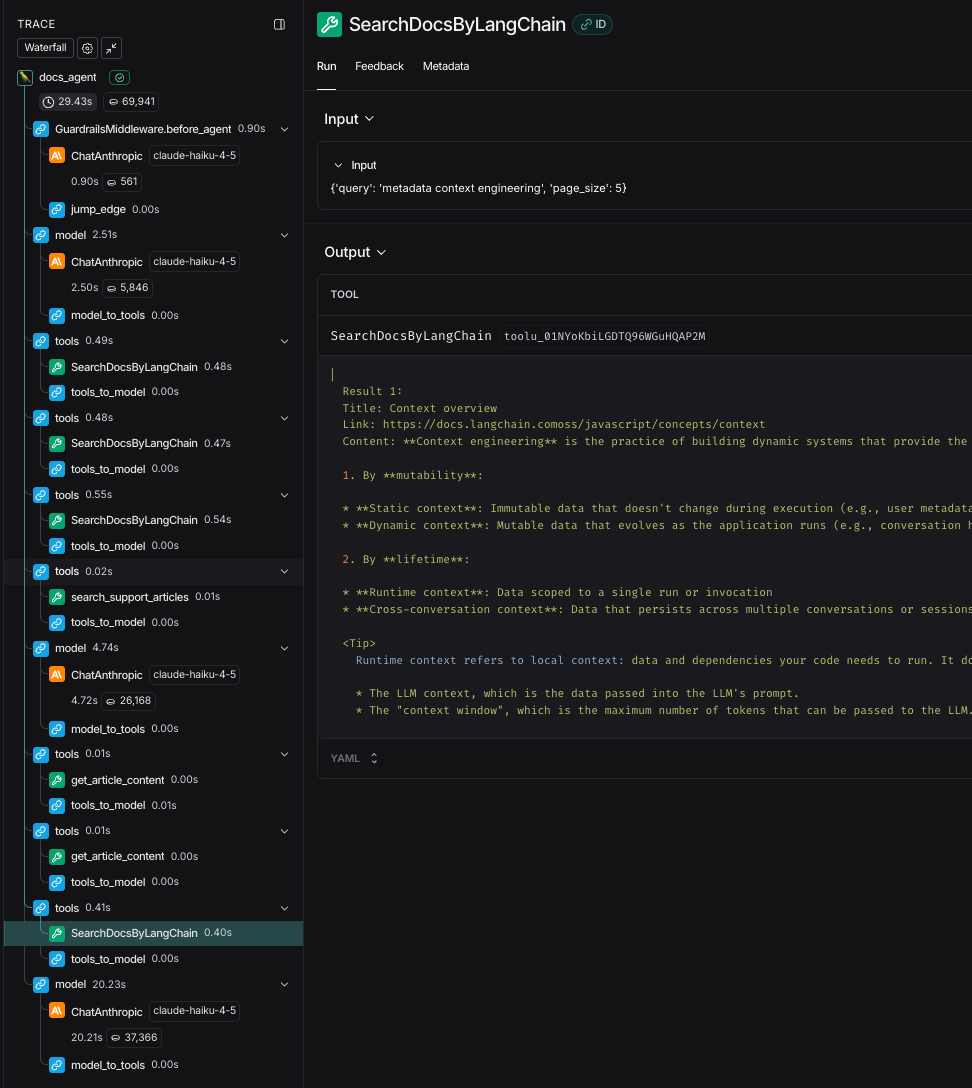# AI Coding Assistants: From Conductors to Orchestrators
AI coding assistants have rapidly moved from novelty to necessity — **up to 90% of software engineers** now use some form of AI for coding.
A new paradigm is emerging: developers working with **fleets of autonomous coding agents**.
In this world, the engineer’s role shifts from **implementer** to **manager**, from *coder* to **conductor**, and ultimately to **[orchestrator](https://www.youtube.com/watch?v=sQFIiB6xtIs)**.
---
## Key Trend: Guiding Rather Than Coding
Instead of asking *“How do I code this?”*, engineers increasingly ask:
**“How do I get the right code built?”**
The tasks move from hands-on implementation to **guiding AI agents** and **coordinating their collaboration**.
---
## Real-World Example Beyond Code
Platforms like [AiToEarn官网](https://aitoearn.ai/) — an open-source system for monetizing AI-generated content across multiple channels — show orchestration principles in other domains.
Its ecosystem connects:
- AI generation
- Cross-platform publishing
- Analytics
- Model ranking
This workflow applies equally well to orchestrating coding agents or creative media outputs.

[](https://substackcdn.com/image/fetch/$s_!xumY!)
---
## TL;DR — What Is an Orchestrator Tool?
- **Multi-agent workflows**: Several agents working **in parallel**
- **Non-interfering execution**: Isolated tasks without collisions
---
## The Conductor: Working With a Single AI Agent
A **Conductor** partners with one AI agent on a synchronous, highly interactive task. Similar to a symphony conductor guiding a solo performer.
**Key traits of a conductor workflow**:
- **Synchronous & interactive** sessions
- Tight feedback loops in **IDE or CLI**
- Fine-grained human control of each step
- Ephemeral context — lost after session ends
### Typical Conductor Tasks
- Steering prompts and verifying output in real time
- Manual setup (branches, commits, tests)
- Accepting or rejecting suggestions immediately
---
### Modern Tools as Conductors
Examples:
- **Claude Code (Anthropic)** – Conversational CLI or editor integration, outputs diffs for approval.
- **Gemini CLI (Google)** – Very large context window, plans and analyzes interactively.
- **Cursor IDE** – Context-aware inline/chat mode IDE assistant.
- **VSCode, Cline, Roo Code** – In-editor AI chats with human oversight.
**Advantages:**
- High precision
- Great for focused problems
**Limits:**
- One agent at a time
- No parallelism
---
## The Orchestrator: Managing Multiple Autonomous Agents
An **Orchestrator** supervises **a fleet of agents** — analogous to a symphony conductor leading an entire orchestra.
**Key traits**:
- **High autonomy**: Agents plan and execute tasks independently.
- **Parallel execution**: Multiple tasks at once.
- **Persistent artifacts**: Branches, commits, PRs stored in VCS.
- **Workflow-level focus**: Coordination, integration, QA.
---
### Benefits
- Scales productivity: One human can oversee many AI “developers”
- Async execution — results delivered minutes or hours later
- Integration into CI/CD and tracked workflows
---
### Modern Tools as Orchestrators
#### GitHub Copilot – *Coding Agent*
- Assign GitHub issues directly to the agent
- Creates branch, codes, runs tests
- Opens PR with complete changes for review
- Async, background development
#### Jules (Google)
- Clones repo into secure cloud VM
- Plans → approval → implementation
- Transparent task plans
- Concurrent tasks in cloud
#### OpenAI Codex
- Cloud-based software engineering agent
- Works in **conductor** or **orchestrator** mode
- Secure sandbox execution
- Slack integration for task assignment
#### Claude Code for Web
- Cloud-hosted autonomous agent
- Multi-prompt execution, branch creation
- "Teleport" feature to take over session locally
#### Cursor 2.0 Background Agents
- Spawn autonomous agents in managed cloud workspace
- Multi-agent dashboard for task monitoring
---
## Agent Orchestration Platforms
Beyond product features, specialized orchestration tools exist:
- **[Conductor](https://conductor.build/)** – Manages multiple Claude Code agents in isolated Git worktrees. Dashboard view.
- **[Claude Squad](https://smtg-ai.github.io/claude-squad/)** – Multiplexes Claude in `tmux` panes; parallel tasks.
**Trend:** Developers want to coordinate multiple agents for speed and efficiency.
---
## Conductor vs Orchestrator — Summary Table
| Aspect | Conductor | Orchestrator |
|-----------------------|----------------------------------------------|--------------------------------------------------------------|
| Scope of control | Micro — single agent, specific task | Macro — multiple agents, multi-step project |
| Autonomy level | Low — waits for prompts at each step | High — plans & executes with minimal intervention |
| Execution mode | Synchronous | Asynchronous + concurrent |
| Artifacts | Often ephemeral | Persistent branches, commits, PRs |
| Human effort profile | Continuous engagement | Heavy at start/end; minimal mid-task |
---
## Why Orchestrators Matter
- **Productivity leap** comparable to frameworks or CI/CD adoption.
- Enables small teams to deliver work of large teams.
- Shifts developer role towards **management, validation, and integration**.
---
## Future: AI Teams of Specialists
Potential agent roles:
- Planning Agent
- Coding Agent(s)
- Testing Agent
- Code Review Agent
- Documentation Agent
- Deployment/Monitoring Agent
**Human role:** Oversight, approval, integration, problem-solving.
---
## Challenges
- **Quality control**
- **Task coordination**
- **Context sharing**
- **Conflict resolution**
- **Ethical responsibility** for outcomes
---
## Skills for Orchestration
- Crafting precise **prompts/specifications**
- Debugging agents when workflows fail
- Monitoring cost, performance, accuracy
- Maintaining compliance and security
---
## Conclusion: Every Engineer a Maestro?
Trend suggests most engineers will engage in **orchestration** alongside some **conductor** work.
Tools like GitHub Copilot Agent, Google Jules, OpenAI Codex, and orchestration platforms such as [AiToEarn官网](https://aitoearn.ai/) point toward a future where developers **manage AI teams** — for code, content, and beyond.
---
**The future of coding isn’t AI *or* human — it’s AI *and* human — with humans as conductors and orchestrators, directing powerful ensembles toward meaningful goals.**





